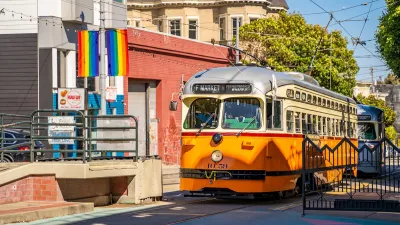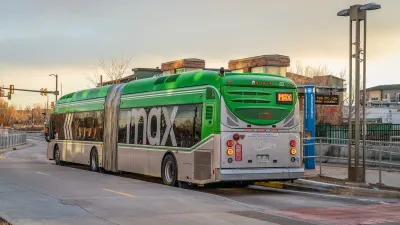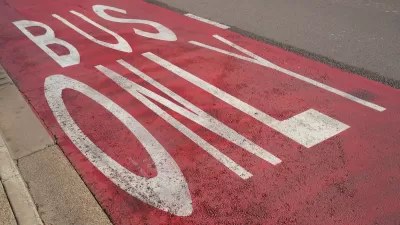Spokane, Washington may be at a crossroads as voters consider expanding the city's urban transportation system. Some say it's key to attracting young workers and building a walkable urban environment. Others see it as a waste of money.

This November, voters in Spokane, Washington will have the opportunity to vote for an increase in the sales tax to fund a raft of transportation projects including a new bus-rapid transit system. John Robert Smith of Transportation for America, writing on the Opinion Page for the Spokesman-Review, advocates for the need for better mass transit as a means for attracting and retaining young workers who might otherwise look elsewhere. Noting the downward trend of millennials driving cars, Smith writes that cities are now competing to create the urban, walkable neighborhoods that attract a wide range of jobs and workers. Smith notes:
In “Core Values,” a study my organization conducted on the movement of companies across the country relocating to downtowns, businesses reported that current and potential employees want neighborhoods with restaurants, cafes, cultural institutions, entertainment and nightlife as well as easy access by public transportation.
...
Bus rapid transit done right can bring economic benefits akin to more expensive light rail systems, but at a lower price – a great recipe for midsize cities that aren’t quite ready for rail-based transit.
In a follow-up to Smith's opinion piece, Randall O'Toole of the Cato Institute argues against the sales tax increase as a waste of funds to be used by the Spokane Transit Authority to do "projects promoted by the federal government." O'Toole also argues that the success of Portland in attracting young workers has less to do with its light rail system and more to do with its abundance of microbreweries.
FULL STORY: John Robert Smith: Will Spokane get on board or be left behind?

Planetizen Federal Action Tracker
A weekly monitor of how Trump’s orders and actions are impacting planners and planning in America.

San Francisco's School District Spent $105M To Build Affordable Housing for Teachers — And That's Just the Beginning
SFUSD joins a growing list of school districts using their land holdings to address housing affordability challenges faced by their own employees.

The Tiny, Adorable $7,000 Car Turning Japan Onto EVs
The single seat Mibot charges from a regular plug as quickly as an iPad, and is about half the price of an average EV.

Trump Approves Futuristic Automated Texas-Mexico Cargo Corridor
The project could remove tens of thousands of commercial trucks from roadways.

Austin's First Single Stair Apartment Building is Officially Underway
Eliminating the requirement for two staircases in multi-story residential buildings lets developers use smaller lots and more flexible designs to create denser housing.

Atlanta Bus System Redesign Will Nearly Triple Access
MARTA's Next Gen Bus Network will retool over 100 bus routes, expand frequent service.
Urban Design for Planners 1: Software Tools
This six-course series explores essential urban design concepts using open source software and equips planners with the tools they need to participate fully in the urban design process.
Planning for Universal Design
Learn the tools for implementing Universal Design in planning regulations.
Smith Gee Studio
City of Charlotte
City of Camden Redevelopment Agency
City of Astoria
Transportation Research & Education Center (TREC) at Portland State University
US High Speed Rail Association
City of Camden Redevelopment Agency
Municipality of Princeton (NJ)





























